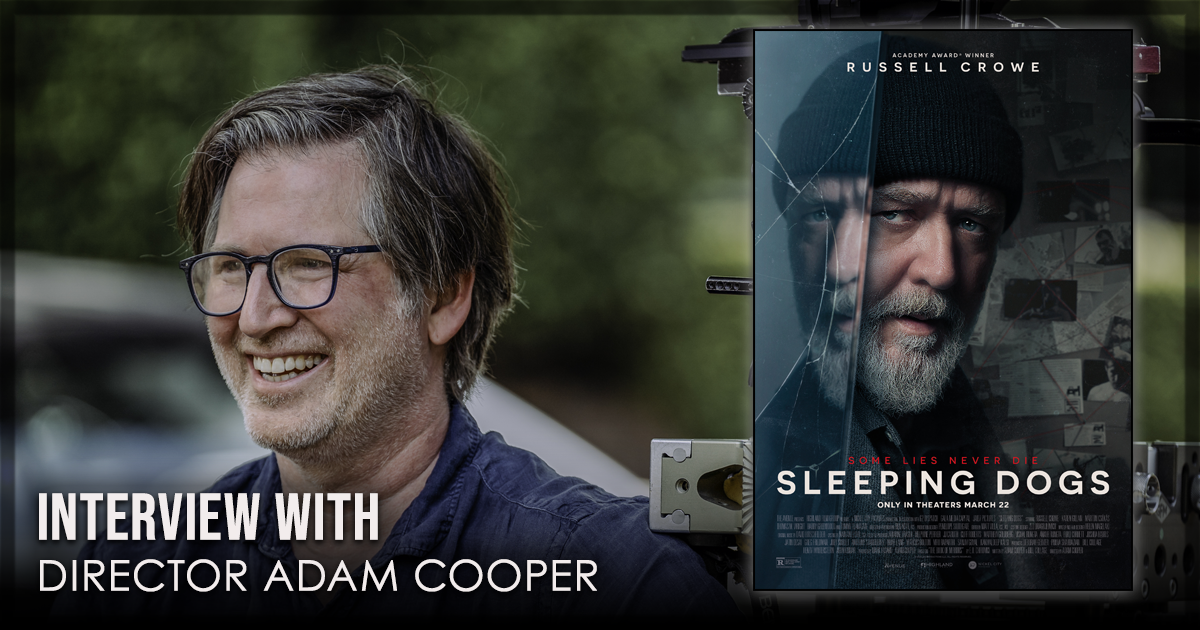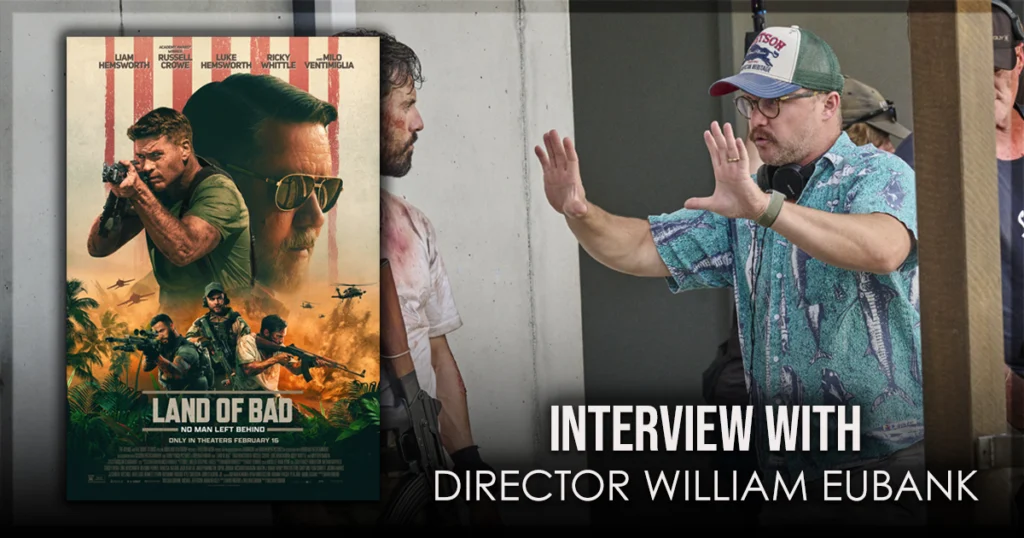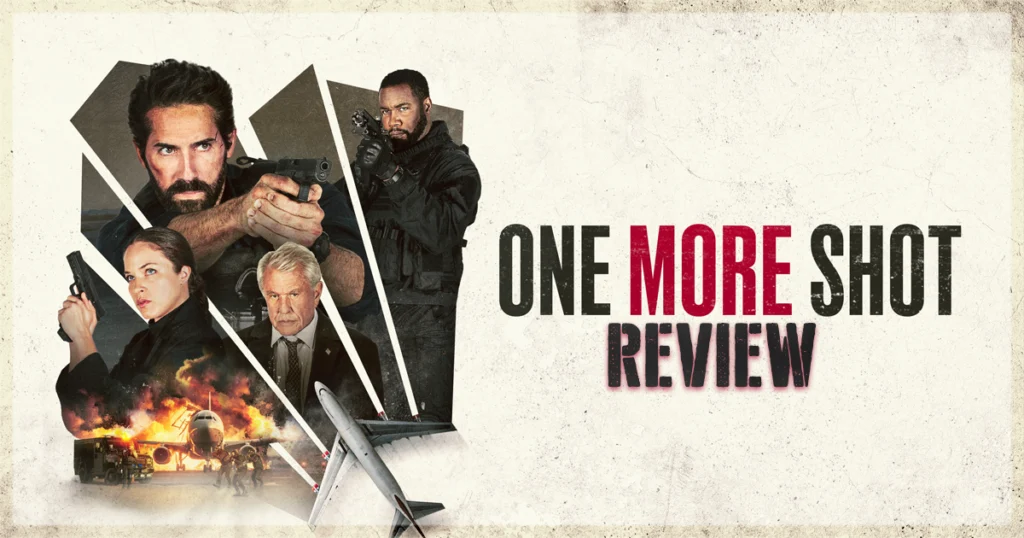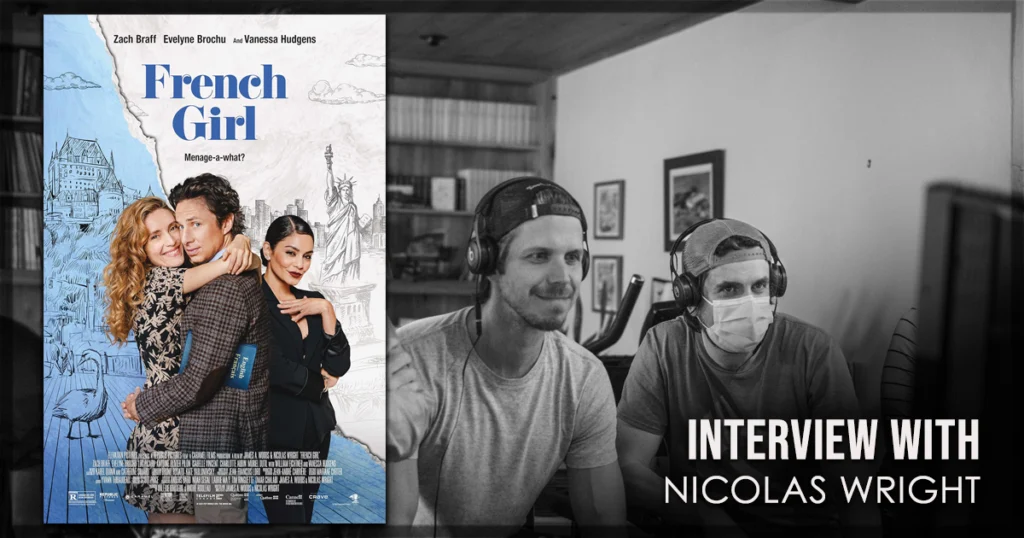In Sleeping Dogs, co-written and directed by Adam Cooper, truth is a point of view through the memory of ex-homicide detective Roy Freeman. Academy Award winner Russell Crowe (recently in Land of Bad) stars as Freeman, a man in crisis with a memory that is quite broken. Freeman is a recluse, and his home is littered with post-its, reminding him of details that Alzheimer’s has stolen. He can’t continue on his shut-in way when his old job comes calling when a man’s life hangs in the balance. The man, Isaac Samuel (Pacharo Mzembe), is on death row and sentenced to die for murder, and Freeman isn’t sure anymore that he got it right.
Freeman must piece together fragmented evidence and his memory from a decade-old investigation. As he digs deeper, a web of dark secrets unravels, connecting to his own troubled past. Relying solely on fading instincts, Freeman confronts a disturbing truth: some mysteries are better left buried. Sleeping Dogs explores the idea that it might be better to let sleeping dogs lie. Along with Crowe, the film stars Karen Gillan.
Co-writer and Director Adam Cooper is no stranger to big projects. The creative is perhaps best known for adapting huge franchises for the screen, including Assasin’s Creed and Allegiant. Over Zoom, we sat down with Cooper to talk about bringing the thriller Sleeping Dogs to life. Cooper was full of insight and shared his process for adapting The Book of Mirrors for the screen. He talked about working with Russell Crowe, including how Cooper’s directorial debut was a very collaborative process. Cooper also shared why character was key and what was so appealing about the story of Roy Freeman.
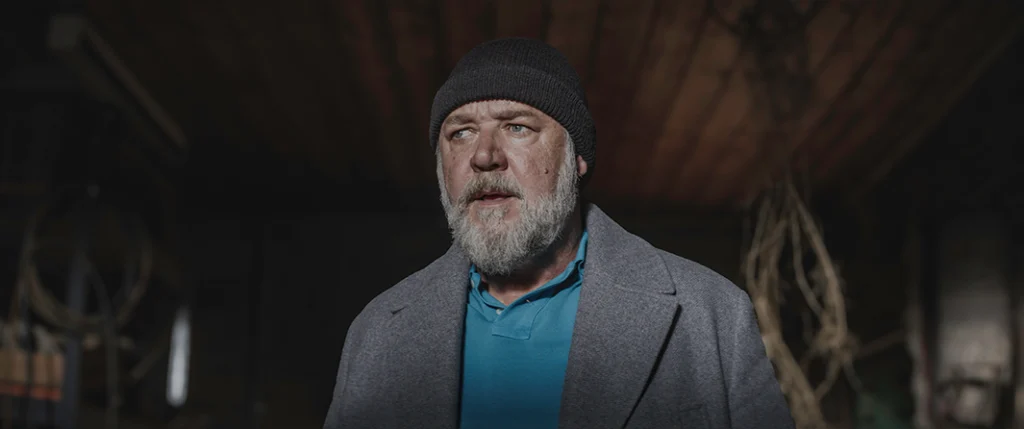
The Interview with Sleeping Dogs writer and director Adam Cooper
[Editor’s note: This interview has been lightly edited for clarity.]
Ayla Ruby: I really enjoyed the movie. I watched it this morning. And I’d love to talk about your journey to the book, your journey to getting the rights and adapting this project.
Adam Cooper: Sure. In 2016, a guy named Pouya Shahbazian, who we’ve worked with on Allegiant, sent along a pre-publication galley of The Book of Mirrors, written by Eugen Chirovici, who is a Romanian thriller author, writing in English for the first time. And I was really compelled by the mystery in the book, but I was particularly compelled by the character of Roy Freeman, which is the part that Russell [Crowe] ultimately ended up playing in film, who’s a character who’s not introduced until the last third of the book.
Adam Cooper: And so, we optioned the book and wrote the script on spec, but we really, we reframed the narrative of the book and lensed the entire narrative through the eyes of the Roy Freeman character, which is very different from how the narrative unfolds in the book. Because really wanted to tell a singular experience of this man who’s in crisis, who’s bereft of memory. Who then as a mental exercise, begins to reinvestigate this case from the past and gets sucked deeper and deeper into it. And really use the mystery, the plot, as a mechanism by which to actually expose his character.
On how Russell Crowe came on board to Sleeping Dogs
Adam Cooper: But we optioned the book the beginning of 2017, wrote it on spec. The re-option on book got a little bit pricey, so I brought it to my friend, Mark Fasano, who I’d done some work for in the past, who’s a producer. And he came on as a producing partner on the film. Then we tried for a long time to get the movie made by bringing it to actors. And in 2022, Russell read it I think in April. I think I talked to him in June or July.
Ayla Ruby: That’s pretty fast.
Adam Cooper: Well, I would say it was basically six years from the time that we optioned the book.
Ayla Ruby: True. I mean, since he read it. But yeah.
On how The Book of Mirrors differs from Sleeping Dogs
Adam Cooper: Yes, that part is fast. That is fast. That’s true. That’s what came to be, but I think the movie is pretty different from the book in many respects. The elements of the book are all in the movie, but the way in which they’re organized and reshuffled and the way the narrative unfolds is really different from the book.
Ayla Ruby: Now, from what I understand, and I haven’t read the book yet, but I’m going to, it’s told from three different characters.
Adam Cooper: Correct.
Ayla Ruby: And then Roy is like you said, the last third.
Adam Cooper: Correct. Yeah, that’s correct. And neither of the first two characters figure into the narrative because we basically took the action that the narrative real estate that they formally took up, and we gave it to Russell’s character. Because the book itself, there wasn’t enough narrative for any one of the characters from which to build a complete singular narrative so we had to assign it to a character.
Adam Cooper: And the suggestion of who Roy was, was the most interesting way to do it. Especially because it’s a story about the truth being essentially a point of view that our memory of something that transpired is our recollection is never really what truly happened. It’s just a memory of it, which has been influenced by time, others’ perceptions of it. We figured what better way to explore it, that kind of theme than through the lens of a person who is bereft in memory.
Ayla Ruby: Character wise, I thought it was really interesting. Just he was bereft of it, he was unburdened by it. And he was on this journey with the audience. And I thought that was just very interesting and different and really enjoyable. I liked it.
Adam Cooper: Right. Yeah, I mean, the goal was to have the audience in lock step with the character. So we’re not presenting any information omnisciently so that the audience has information that Roy doesn’t have.
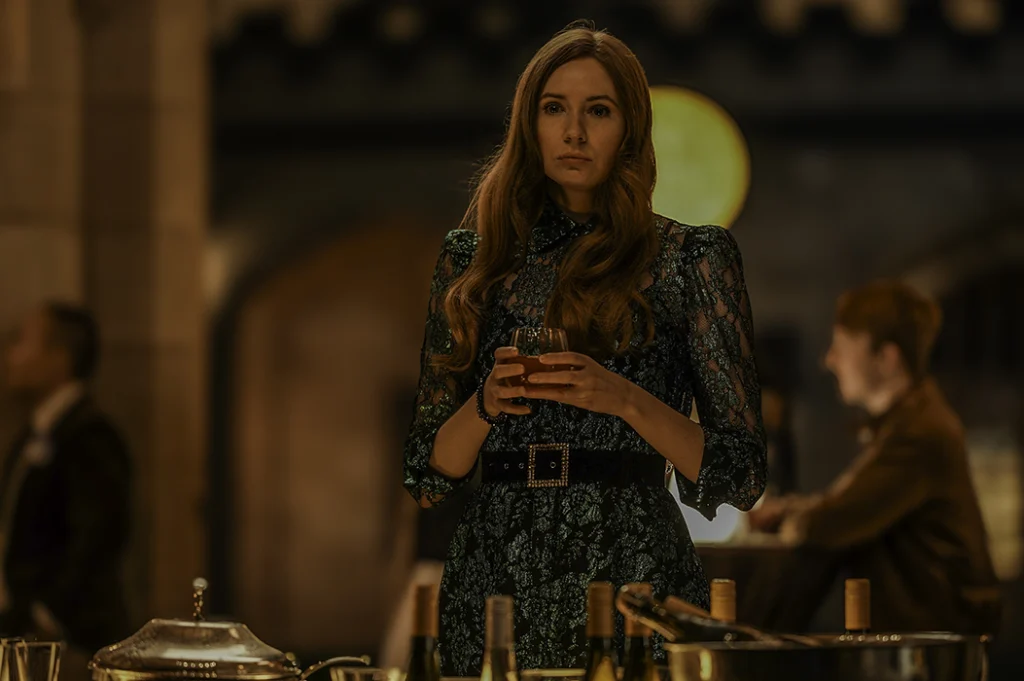
On Cooper’s approach to adaptations
Ayla Ruby: You’ve adapted a few things now. And has your approach to adapting things changed from Divergent, Assassin’s Creed to this? Have you learned anything along the way that maybe that’s been really helpful?
Adam Cooper: Yeah, I mean, I think that barring something that has been written with the idea of it being existing in another medium, fiction and nonfiction published works are just through their own medium. And I think it’s very rare that you find a novel that you can just essentially transmit. They call it an adaptation for a reason. You’re adapting content for another form.
Adam Cooper: And I think that not to… Maybe this will be not the right thing to say, but a lot of times you have to change what’s in a book in order to make it a movie or a television series. But it’s the book is what inspires you to do that. For me, I’m drawn to theme and character. And so, what drew me to Roy’s character is he’s a man in crisis.
Adam Cooper: And so, I think when I read either fiction or nonfiction, I’m always drawn to the character and what is the character’s journey? And then the story becomes a mechanism by which the character is further explored, or in the case of this movie, exposed. I think when I’m adapting something, I’m always drawn to the character and what is the character’s journey.
Adam Cooper: And a lot of times the elements of the journey as presented in a book don’t exist in the linear timeline that you might want them to exist in the telling of the character’s narrative in a film or television series. I think what I’ve learned is latch onto theme and latch onto character. And then the way in which the story is told, as long as it’s honest and in service of the character, it doesn’t feel like you’re somehow bastardizing the narrative. You’re holding onto the central truth of either a fiction work or nonfiction work in service of whatever the story might be.
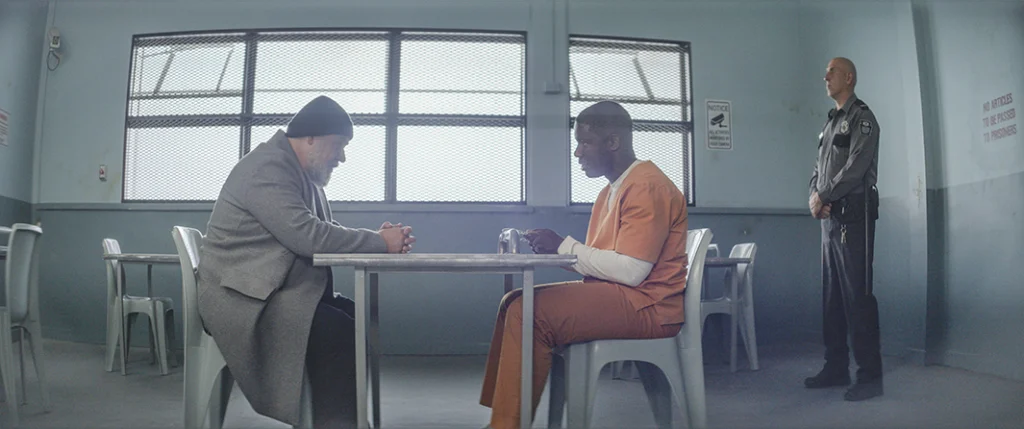
On directing a feature film
Ayla Ruby: That makes sense. And I could talk with screenwriting a long time, but I have to ask about directing too. This was your first full length feature.
Adam Cooper: Yes.
Ayla Ruby: How did you approach that? How do you break down something so massive to-
Adam Cooper: What I did was I created a bible where I took every single scene in the film, even if it was an eighth of the page, and I had a page for that scene. And I would write all my thoughts about the scene. What the scene is about, why it exists in the narrative, where it falls relative to what came before and what comes to after it. What is going on for each of the characters in the scene. And then what was the visual language we were going to use to address each of those things.
Adam Cooper: When it got to shooting that scene on the day, I would be able to prep myself and the team by knowing what it’s about for each of the actors in the scene. What are we doing visually with the camera? What are notes for art department on it? Are there any notes that we’re not going to be dealing with this specific note in the shooting of it, but it’s something to remember when we’re in post because that’s something that’s going to be added in post to enhance what we’re doing on the day.
Adam Cooper: I did all that. And then what you realize is all of that abstract thinking that you’re doing, none of it matters until you’ve seen your locations. I did all this work before I even went to Australia where we shot the film.
Ayla Ruby: It was in Victoria, right?
Adam Cooper: Yeah, we shot in Melbourne. You do all this abstract thinking, like you’re dreaming the film. And then I get into your living room and I go, none of what I came up with worked. In a way it doesn’t really come to life until you see the space that you’re going to be working in. And then you have a whole bunch of other ideas.
Adam Cooper: And I think the other thing that you just learn is that the things that you’ve written on the page, you’re not thinking practically when you’re writing them. And then you get there and you realize, “I can’t do this.” And you have to rewrite scenes and rethink things because you have to figure out how you’re going to practically accomplish things.
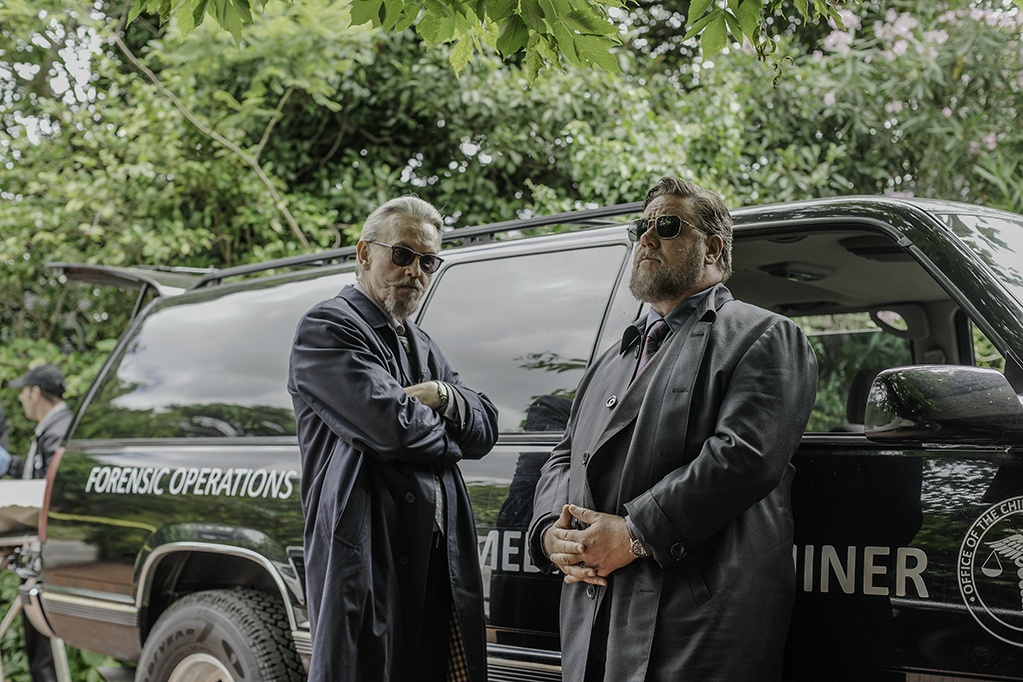
On filmmaking being collaborative & how helpful Russell Crowe was in this process
Ayla Ruby: And I don’t know if you just answered that, but I know we’re getting close on time. But was there anything really, really challenging or that you had to overcome besides the locations and that practicality during this film?
Adam Cooper: Yeah, I think you have to, I think there’s maybe a little bit of an emotional battle that goes on inside. And I can only speak to as a first-time filmmaker, I don’t know if second-time filmmakers or 50th-time filmmakers still experience this. But I think you think that you’re expected to know everything, but you just don’t. And you have to be, I think, willing enough and secure enough with your insecurities to ask for help. To look to your partners, your cinematographer, and simply say, “I don’t know. What do you think?”
Adam Cooper: And so I think realizing that and being honest. I said to Russell the first time I met him on the phone, I said, “I’m a first-time filmmaker, and I’m not going to pretend to know things that I don’t know.” And he said, “I’m totally cool with that. I’ve done this about 1,000 times, and I’m not going to pretend to [not] know things that I do. I’m not going to pretend to not know things that I do know.”
Adam Cooper: And that was really helpful for me. It made me feel like I had a real collaborator. And that’s a great way to go into making a movie, where everybody is just contributing. And look, it’s my job to be like the master of the story to make sure that all the pieces that anybody is bringing fit into an overall creative vision.
Adam Cooper: But I think it’s the way to get through the challenges you’re talking about, be it over time or money or whatever they are, is to embolden everybody that you’re working with to be contributing storytellers to the story. And I think that really helped.
Ayla Ruby: Oh, that’s wonderful. And thank you so much for this, and it was lovely to meet you.
Adam Cooper: Likewise.
Sleeping Dogs is now playing in theaters.
Are you going to check out Sleeping Dogs? Let us know on X @MoviesWeTexted.
You might also like…
‘Land of Bad’ Interview with Writer and Director William Eubank
‘One More Shot’ Review: A No-Holds-Barred DTV Spectacle
‘French Girl’ Interview with Writer and Director Nicolas Wright

